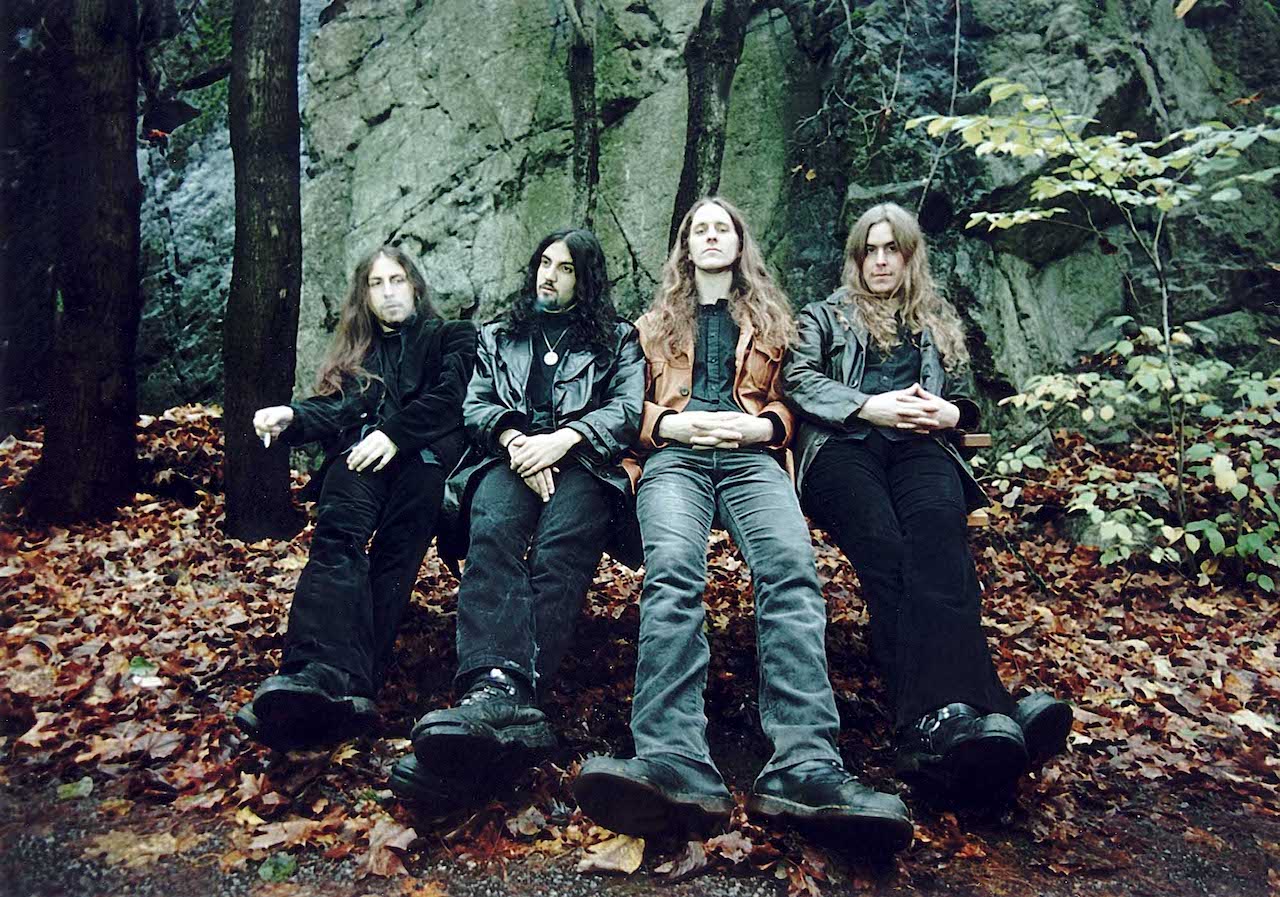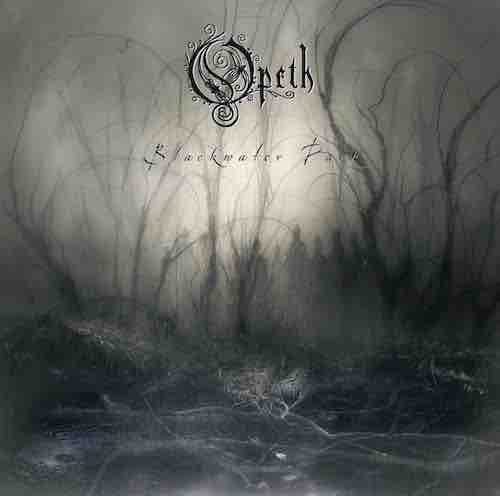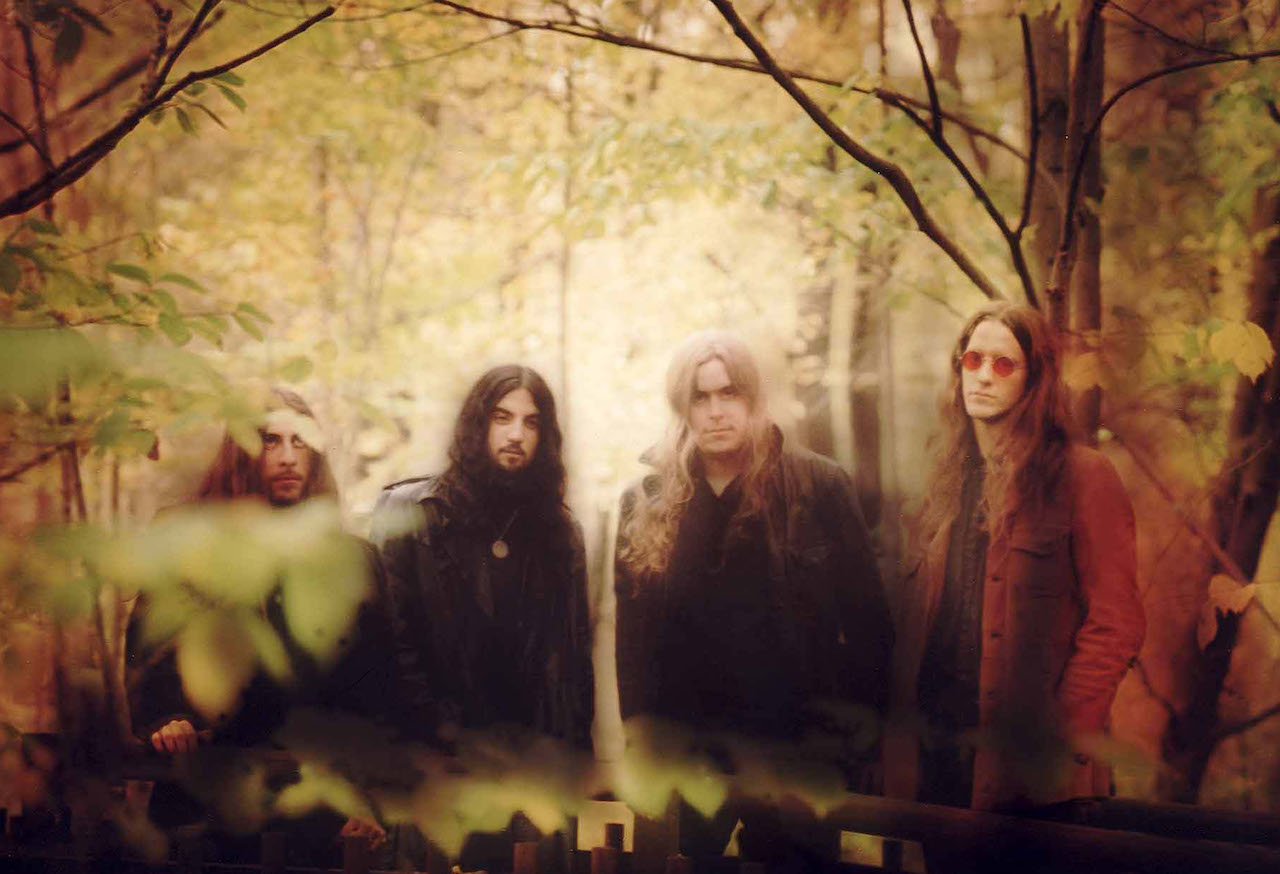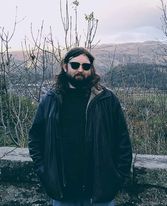When Mikael Åkerfeldt joined Opeth in 1990, his head was filled with dreams. Though he gorged on a diet of death metal and “hopelessly obscure” prog records, he spent his formative years starry eyed as heavy metal conquered the world one stadium at a time.
But 10 years later, Opeth weren’t conquering stadiums – they weren’t even winning over pubs. “Our first headline show was at the White Horse in High Wycombe – it was like Bad News, an old guy and his dog showed up!” Mikael says.
It was 2001 and Opeth were working on album number five, their previous albums having achieved a positive critical reception and earning them a cult reputation for boundary-pushing extreme metal. As nice as that was, it didn’t compete with Mikael’s childhood dreams of “swimming pools filled with cash” and “a couple of Rolls-Royces”.
“But then, I probably should have been suspicious when we signed our first contract and it was done in a boiler room!” he chuckles. “We were nobodies and we were hungry.”
Unencumbered by fame and glory, Opeth spent much of their first decade in their native Stockholm, writing music, going to parties and playing the occasional show. But on the opposite coast, in Gothenburg, melodic death metal was brewing up a storm.
“There was almost a rat race,” Mikael remembers. “It was all about finding new influences. I remember hearing In Flames when they incorporated acoustic parts and it was like, ‘Those fuckers!’ like they were trying to steal our sound... despite the fact they almost certainly had never heard of us! Every time some band did something that felt non-traditional, we felt stressed like we had to go one step further. They do three-minute songs, we need to do 30-minute songs.”

Swept up in a wave of innovation, Opeth’s early black and death metal elements were thrown into a pot with everything from folk and prog to doom, and left to simmer until it coalesced into a multi-layered, omni-textual extreme broth. But it would all be for naught if they couldn’t actually get their music out to the masses. Enter Music For Nations – Opeth’s new label after some... aggressive contract negotiations.
“They nicked us!” Mikael exclaims. “We were supposed to be with Peaceville for five or six records and had done one, but Hammy [Paul Halmshaw, Peaceville founder/owner] called me up one day to say that Music For Nations were threatening to withdraw support from the Peaceville catalogue and stock if Opeth couldn’t sign to them. Now, I’m a very loyal guy, so I wanted to support Hammy. At the same time, there was a shallow part of me that thought, ‘I’m now on the same label as Manowar, Mercyful Fate and Metallica.’ I was flattered, but also angry because we didn’t have a say.”
Any resentment quickly faded when it became apparent Music For Nations were ready to push Opeth out further than they had ever been before – and not a moment too soon, as the band could already see their salad days were numbered.
“Blackwater Park, in many ways, was the last hurrah for the dreamers – it felt like after that we’d have to give up and find jobs to support ourselves,” Mikael says. “I knew I needed to do something. Musically speaking I was still very inspired and opinionated, but the band felt a bit deflated because we weren’t going anywhere.”
If the band felt like they were languishing in Stockholm, it only got worse when Mikael and drummer Martin Lopez were confronted by a mugger on the subway one night while travelling to their rehearsal studio in Rinkeby. “This guy took out a knife and put it on my leg, demanding our money, but we didn’t have money!” Mikael remembers. “More people got on and he decided to leave before someone called the cops.”

Luckily, the band had already booked an escape – some time at the newly expanded Studio Fredman in Gothenburg. As it turned out, they weren’t the only Swedish metal band recording a breakthrough record for a new label there, as Soilwork had set up in Studio 2 to record A Predator’s Portrait for Nuclear Blast.
The bands quickly became friendly – Mikael even ended up singing on the title track of Soilwork’s album. Between sessions, Soilwork frontman Björn ‘Speed’ Strid also got to listen to Blackwater Park coming together. “There was this amp you could turn on and hear what was being recorded in Studio 1,” he says. “I sat there listening to Blackwater Park taking shape riff by riff, Mikael playing the acoustic parts – it was pretty magical.”
On paper, Opeth weren’t making enormous stylistic leaps from what they had done in the past. But they had a secret weapon – prog mastermind (and then Porcupine Tree frontman) Steven Wilson. He had reached out to Mikael after hearing Still Life in 1999. An invitation to grab dinner sometime was quickly accepted by a delighted Mikael – “I booked the plane tickets to London almost the same day,” he laughs.
“Steve was so different to us; very polite, didn’t swear... and so tiny, but made this enormous music! We were like, ‘Who is this guy?!’ like he was some kind of elf! But he taught us so much; I learned how boxed in we’d been when it came to specific sounds like death metal. Working with Steve it was like, ‘Why don’t you open that door’, and we realised we should do things our own way.”
Steven’s magic touch proved to be the missing ingredient. With him at the dials, Opeth achieved their sonic ambitions, fusing genres and styles into a package that was as cerebrally tenacious as it was formidably brutal. “It was almost too nerdy for the death metal scene!” Björn cackles. “There was a sense of beauty that really felt like a new expression. They really took a step up on Blackwater Park; it was like Simon & Garfunkel meets Morbid Angel.”
Returning from Gothenburg, Opeth were excited to share their new sound, meeting up with fellow Stockholm melancholic metallers and close friends, Katatonia. “We used to meet up, drink beers and listen to the new record whenever we had just recorded,” recalls Katatonia frontman Jonas Renkse. “I remember hearing it and thinking, ‘This is their masterpiece.’”
Having received a seal of approval from their fellow musicians, accolades from the press soon followed. It wasn’t long before the band were booked to head out on their first overseas tour, supporting Amorphis and later Nevermore in the US.
“Going onstage, we didn’t know what to expect,” Mikael admits. “We’d done one show in the US to that point, which was a festival in Milwaukee [Milwaukee Metal Fest], and that was amazing. We thought nobody would know who we were, but people went fucking insane. In the end, it felt like we owned those shows, even though we’d only play three or four songs each night.”
The band returned that autumn for their first-ever headline tour, playing Europe and the UK with Katatonia in tow. Exciting as this was, they hadn’t made the big leagues just yet.
“We went to Poland together to play three or four gigs,” Jonas says. “We took a ferry from Sweden to Gdansk, expecting to be picked up by a bus. We got there and found out we were actually travelling from show to show by train! It was a defining adventure for us – both Katatonia and Opeth were on the verge of going somewhere else, but not quite there yet. I remember one train we took was so full, we had to stand in the toilet the whole time.”
Named after an obscure German prog band, Blackwater Park broke Opeth to new audiences and cemented them as one of the brightest stars in extreme metal – kings of a new school of prog metal. “People always ask, ‘Is Blackwater Park your best record?’ And it’s like, no... I think people just think it, because it was the first album that was really available everywhere!” Mikael says fondly.
“It’s also bittersweet. I often just think about the line-up, the guys who made that record. Peter [Lindgren] and Martin [Lopez] aren’t in the band anymore; I haven’t even seen Martin since he left, which is crazy considering it’s been 12 years and we still live in the same city. We were tight as friends and as a band, so it’s bittersweet looking back at the record; I’d almost rather think of the German band.”
But make no mistake – Mikael doesn’t regret the path Opeth took. While the carefree days of youth are long gone, the fact he’s still fronting one of metal’s most revered creative forces, two decades on, is a triumph.
“It’s funny,” Mikael muses. “When we met [Opeth manager] Andy Farrow, he was like, ‘Ten years from now you’ll be playing the Royal Albert Hall,’ and we just thought he was a twat – no way. Then we did! And Wembley, and with bands like Black Sabbath and Rush. So many beautiful moments. Those legendary places, when you’re there and there’s lots of people... I really do feel like we’re the dogs bollocks.”
Published in Metal Hammer #350. A 20th anniversary reissue of Blackwater Park is out now via Music For Nations. See more at www.opethblackwaterpark.com.

